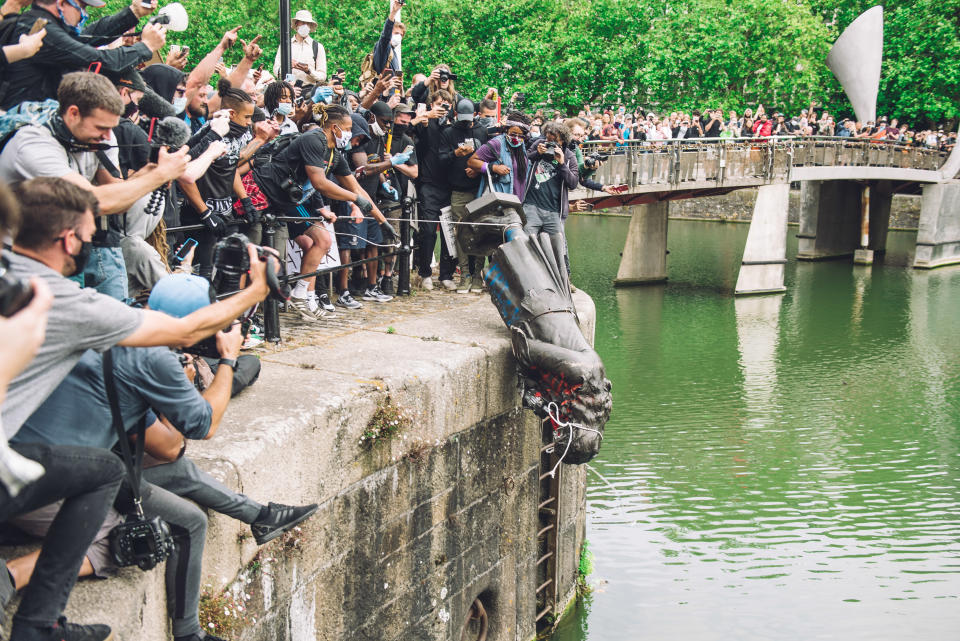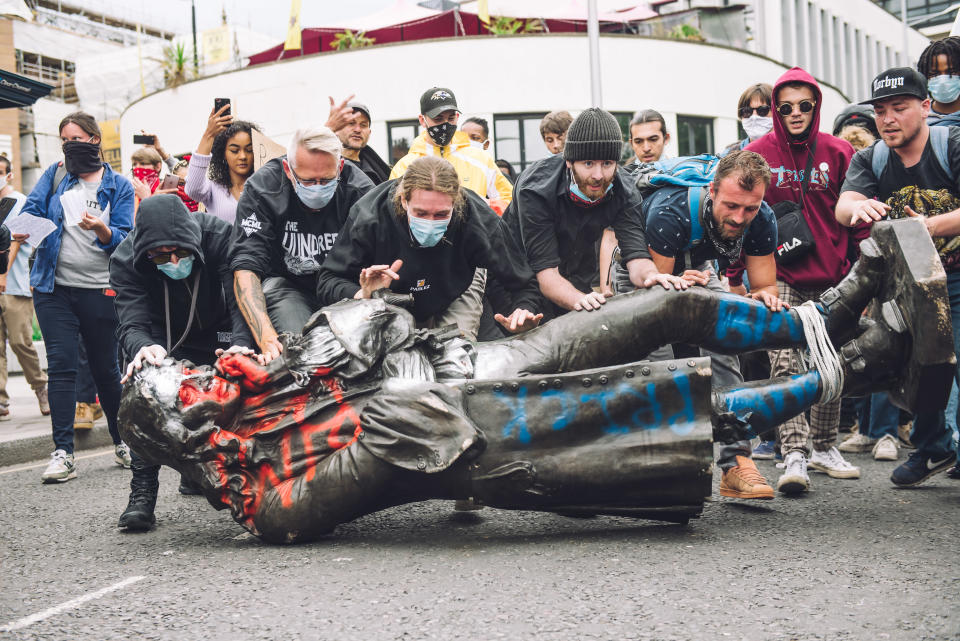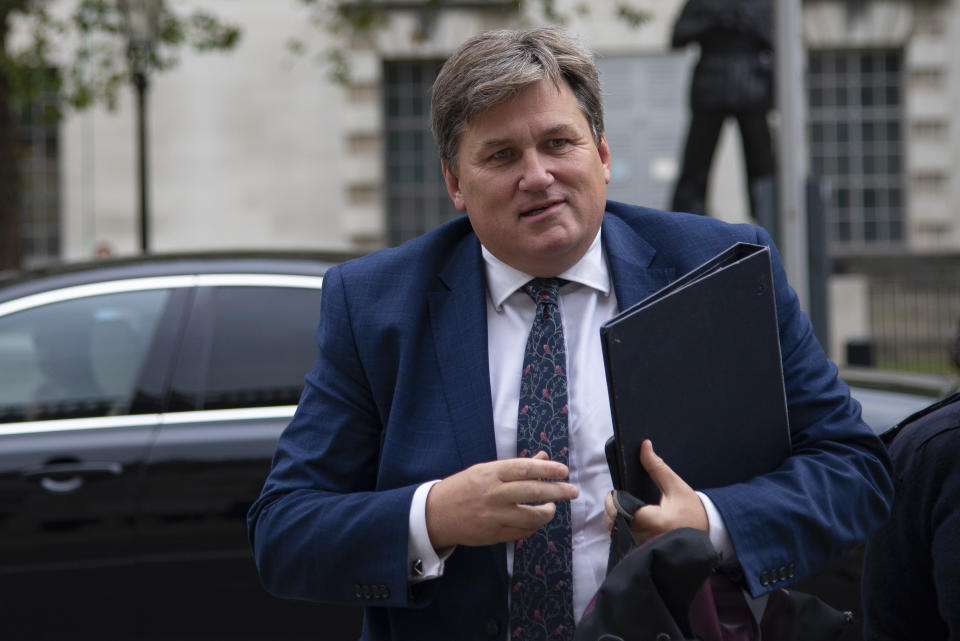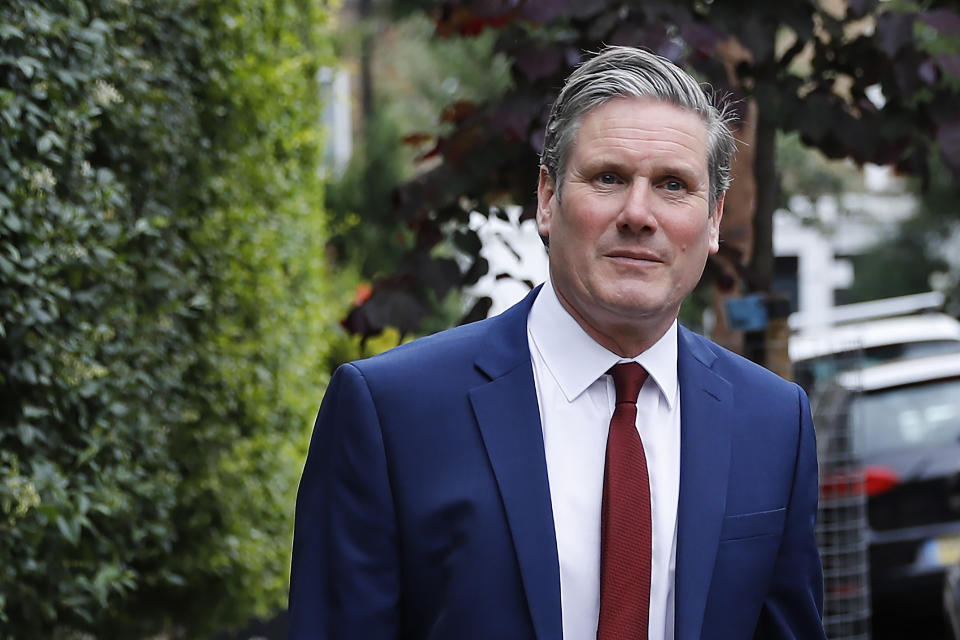Bristol protesters who tore down statue of slave trader must be prosecuted, says government minister
Protesters who tore down a statue of a slave trader in Bristol amid the weekend’s anti-racism demonstrations should be prosecuted, a government minister has said.
Kit Malthouse, whose brief covers crime and policing, told BBC Breakfast that issues like the Edward Colston statue should be resolved through democratic institutions, “not by people showing up with ropes”.
His comments come after Boris Johnson said the weekend’s Black Lives Matter demonstrations, which were also held in Whitehall, had been “subverted by thuggery”.
The protests, like others around the world, were sparked by the death of George Floyd, who died after a Minneapolis police officer kneeled on his neck.
Most demonstrators have been peaceful but the removal of the statue has drawn criticism.


Malthouse told the BBC: “A crime was committed, criminal damage was committed, there should be evidence gathered and a prosecution should follow.”
He continued: “There is an elected mayor of Bristol, there is a council in Bristol and it is via those democratic means that we will resolve these issues in this country – not by people showing up with ropes and tools and committing criminal damage.
“We have to have a sense of order and democracy – that is how we sort things out and that is what should have happened.”

Born into a wealthy merchant family, Edward Colston became part of the Royal African Company, which shipped huge numbers of enslaved Africans to the Americas, in the late 1600s.
He donated money to causes in Bristol but Historic England said much of that came from his involvement in the slave trade.
Labour leader Sir Keir Starmer told LBC it was “completely wrong to pull a statue down like that” but added that the Colston statue should have been brought down “a long, long time ago”.
“You can’t, in 21st-century Britain, have a slaver on a statue,” he said.

Marvin Rees, the Labour mayor of Bristol, said he felt no loss for the statue, but told BBC Radio 4’s Today programme: “As an elected politician, obviously I cannot condone the damage and I am very concerned about the implications of a mass gathering on the possibility of a second COVID wave.”
Malthouse said he was supportive of Avon and Somerset Police’s decision not to intervene, saying that they had the safety of their officers and the crowd in mind.
However, John Apter, the chairman of the Police Federation, told the BBC: “To have no police presence there I think sent quite a negative message.
“I understand the anger but not to have a police presence there was something – I have been a police officer for 27 years – that was a decision I have not seen taken before.”
In a video posted to Twitter, Avon and Somerset Police chief constable Andy Marsh said officers were deployed to the statue but it was pulled down within two minutes.
A message from Chief Constable Andy Marsh following an act of criminal damage at yesterday's Black Lives Matter demonstration in Bristol. pic.twitter.com/gVc023u9AI
— Avon and Somerset Police (@ASPolice) June 8, 2020
He said police worried that to start arrests would lead to injuries to suspects, officers and other demonstrators in a “very violent confrontation”.
He added that he did not condone crime or damage “of any sort” and he backed his officers’ judgement.
“Can you imagine scenes of police in Bristol fighting with protesters who were damaging the image, the statue, of a man who is reputed to have gathered much of his fortune through the slave trade?” he said.
“I think there would have been very serious implications.”
Avon and Somerset Police Superintendent Andy Bennett said 10,000 people attended the Black Lives Matter protest in Bristol and most did so “peacefully”.
“However, there was a small group of people who clearly committed an act of criminal damage in pulling down a statue near Bristol Harbourside,” he said.
“An investigation will be carried out to identify those involved and we’re already collating footage of the incident.”

 Yahoo News
Yahoo News 
